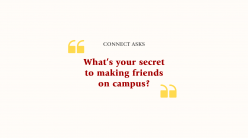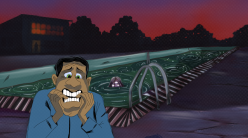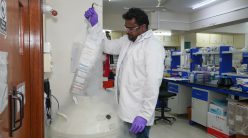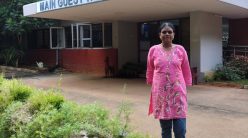When Geeta Ananth walked into the IISc campus in 1995, after a lifetime of moving around the country thanks to her father’s transferable job in the Railways, she didn’t expect to set down deep roots in Bangalore. She had accompanied her husband Ananth Ramaswamy (now Chair of the Department of Civil Engineering), who was starting a new job at the Institute. A music enthusiast, Geeta found her footing at IISc through her passion. She started a Hindustani music class with four people in 2001. “Geetanjali” is now a full-fledged music club with about 150 members. The club is set to start their 10th year of existence. Geeta speaks to CONNECT about the club’s beginnings, its journey through the years, and how music is helping students deal with the challenges of their research.

How did you become interested in music?
Initially, I learned Carnatic music for two years when I was very young and when we lived in Delhi, but it did not appeal to me much. Later, when we lived in Hyderabad, I listened to Padma Bhushan awardees, Pandit Rajan Mishraji and Pandit Sajan Mishraji, whom I consider as my idols now. And I became interested in learning Hindustani music.
At that time, around 1986, which I consider a wonderful coincidence, Dr Ram Shinde had started teaching Hindustani music at the Railway Officers Club. So I started learning under him until 1994. From 1995, when I shifted to IISc after marriage, I continued my Hindustani Music training under Geeta Hegde.
My parents, my in-laws and my husband supported and encouraged me to pursue Hindustani music, and they also gave their full support when I started teaching.
Why did you decide to start this club at IISc?
In 2001, I started teaching Hindustani music on campus. Initially, it was a small group with four members, which included faculty members’ children and students. I took classes from my home, which I continue to do. Slowly the numbers grew with research, MTech and UG students joining too, apart from the faculty members’ families. It was a way for the students to disconnect from their work.
Around 2015, I was thinking about giving my students an opportunity to perform on stage. With very few years of training, I realised that it would not be possible for them to showcase their talent and professionally perform on stage. So, with a few of my students and with the support and blessings of my family and gurus, we started the group Geetanjali.
From there, we took off. Today, I can proudly say that I have taught more than 150 students, some of whom are all over the world and still continuing their training online with me.
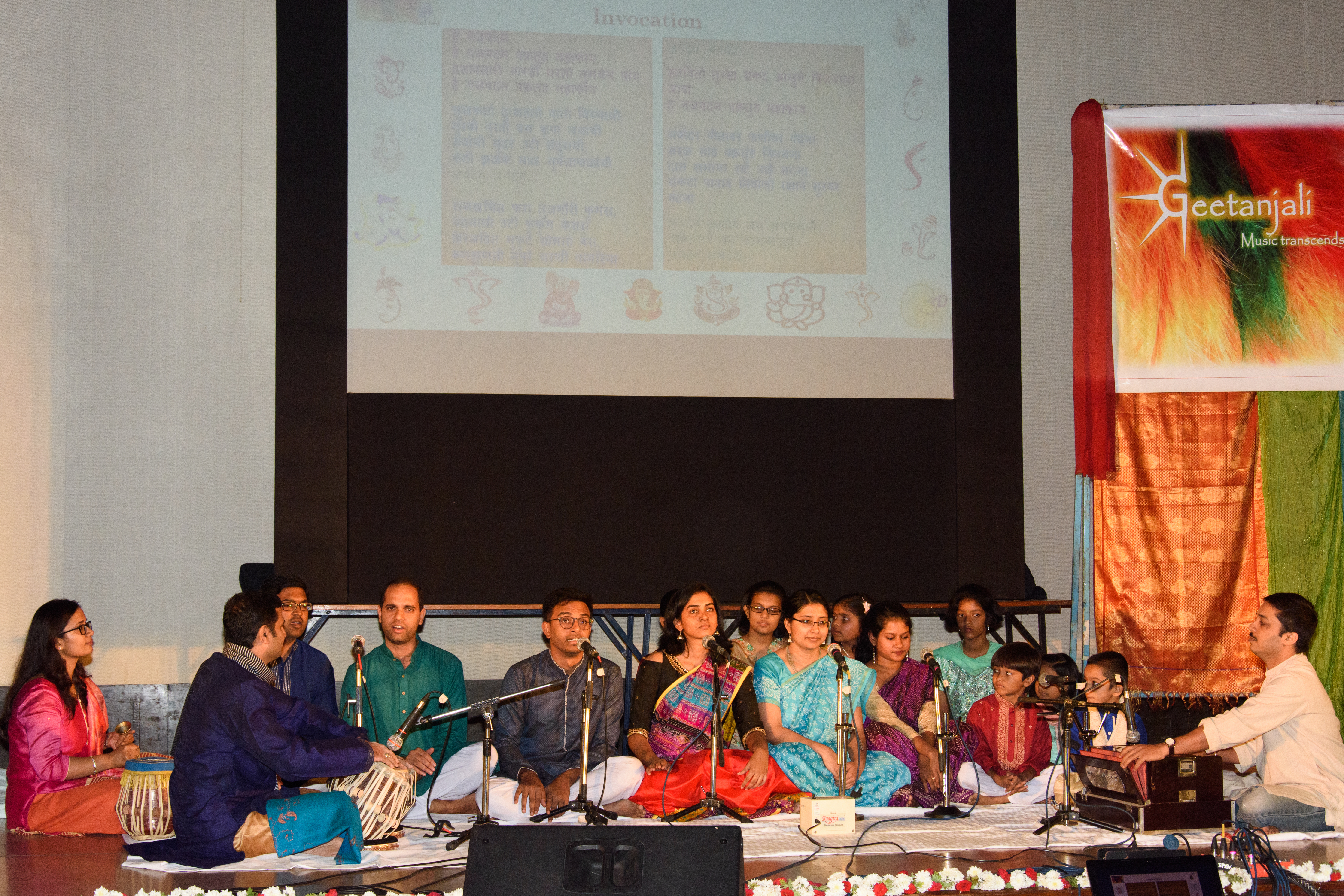
How has being part of the club helped students tackle the rigours of academic life in IISc?
The classes are not just about learning music. I also encourage them to open up and share about their struggles and life in general. When they walk (or rush) into the class, before I start the classes, I speak to them for a while, as they catch their breath and settle down. The general feedback that I was and am getting is that they feel positive, confident and refreshed after the classes. That means a lot to me.
Also, I teach them that when they perform on stage, they should know how to perform, how to interact with the audience and how to keep eye contact with the audience. Many students have told me that this has, in turn, helped them gain confidence to speak at conferences and seminars.
Music also plays a vital role in their mental wellness. I speak to them about facing problems boldly – not to run away from them. It is similar to when some ragas do not come easily, we try some other method or approach till we get it right. I teach them to never give up, come what may! The music training also teaches them patience and discipline which in turn gets translated to their research and studies.
Was it hard to find students interested in Hindustani music?
No, I would not say it was hard because we got a lot of interest and outreach through word-of-mouth. This group is unique because the entire community in IISc is involved and included – research scholars, Master’s and UG students, faculty members and their wives and kids, staff and their kids. All the classes that I take are one-on-one, not group classes. I have classes Monday through Saturday, with around 35-40 students right now. Some of the students who have gone abroad have resumed their classes online as well.
‘This group is unique because the entire community in IISc is involved and included’
What other activities is the group involved in?
We have been part of two international conferences, part of the Students Symposium organised by the Department of Aerospace Engineering – AERES – every year. In partnership with SPICMACAY (Society for the Promotion of Indian Classical Music and Culture Amongst Youth), we help the IISc SPICMACAY coordinator, Professor Ananth Ramaswamy (Chair, Department of Civil Engineering) in organising the events every month at IISc. We help with the arrangements and look after the needs of the artists. This way, we get to meet the artists, interact with them, and gain knowledge. Every month we have a music or dance performance. We have also had puppet shows, folk dances, jazz concerts and theatre.
How often does the group perform in a year?
Twice for sure. Once in July or August and once in December, which is the group’s anniversary. There might be one more in between. This year, we chose to do a ghazal show in May. It was the first of its kind on the IISc campus by an alumnus. Later, he brought out an album, again the first on the campus, which received rave reviews.
This year, on 10 November, we are having a programme by young members of Geetanjali, close to Children’s Day, at the Satish Dhawan auditorium. About 10-11 kids will be performing ragas and they will be doing it solo. The Geetanjali anniversary programme will be on 14 December at the JN Tata auditorium. It is a special occasion as we will be finishing nine years and entering the 10th year.
How important is the community aspect of the group?
Geetanjali is one huge family. If you see our performances, you will sometimes find father-daughter or father-son duos performing, or the mothers performing. You will also find that the entire family gets interested and involved. It is a totally different feeling altogether, one that words cannot express.
Are former members of the group still involved in its activities?
A correction here! Former students but not former members. All of them after leaving IISc are still members of the group. They were, are and will always be a part of this vibrant group. We had a programme two years ago on our anniversary for the alumni. They came in from Mumbai, Chennai, Delhi and even Qatar. A few of them, in the future, do have plans to pursue music in a big way.

Your motto is “music transcends all.” Can you elaborate on this?
Yes! Music does transcend all in our group. We do not see anything other than interest and passion for and in
music. There is nothing else that matters – age, gender, religion, how much music you already know … none
of these matter.
How is learning music and teaching music different?
The main things that teaching teaches are patience and determination. That is the biggest difference [in being a teacher]. I do not breeze through ragas; it has to be perfect. I make them practise till they get the raga perfectly. I tell the students that the foundation has to be strong. I also keep telling them that quantity is not important but quality is. Learning ragas in a systematic and disciplined way is very important.
My advice to the students has been to perform and sing only for themselves and enjoy every moment … to just let go of their feelings. In our group, we do not compete or compare. This group knows only one thing and one language, and that is music. I follow and instil the tradition of the Guru-Shishya parampara, which makes my students stand out. The other important factor that this group proudly shows is that the students or Guru bandhus are there for each other, no matter what.
‘My advice to the students has been to perform and sing only for themselves and enjoy every moment’
What has been the most rewarding experience for you, being a part of Geetanjali?
Oh, there are many! There have been students who could not sing at all. But after a while not only did they learn but they also performed for Geetanjali and did a good job. Another experience is being invited to two international conferences and getting appreciation from the foreign delegates saying that the Geetanjali group showed India in its diverse forms in a short span so beautifully.
The first annual alumni reunion of IISc was organised in 2016. Our group was invited to perform, which was memorable because we performed and gave a presentation describing raga and the various moods. So, the appreciation for Hindustani music grew amongst the alumni who had come and the general public alike.
We have performed in front of so many great and successful people. I invited Pandit Rajan Mishra online [during COVID-19] to do a workshop for my students. Last year, Pandit Sajan Mishra came to IISc and conducted a workshop organised by our group. To get appreciated by such renowned people and get love and affection from all wherever we have performed is indeed very humbling and a moment of pride too.
We launched our website in 2023, which was a big moment. But the notable achievement was the release of Geetanjali’s debut album of ghazals by my student, Dr Chinmay Anand, an alumnus of IISc, this year in July.
When I look back now, I feel so happy, humbled and proud about the Geetanjali IISc group. The group will continue doing its good work of spreading music and positivity amongst all. It would not be wrong to say that Geetanjali has spread the rich Indian classical music and culture amongst the people of IISc and has made the Institute more culturally vibrant too.
